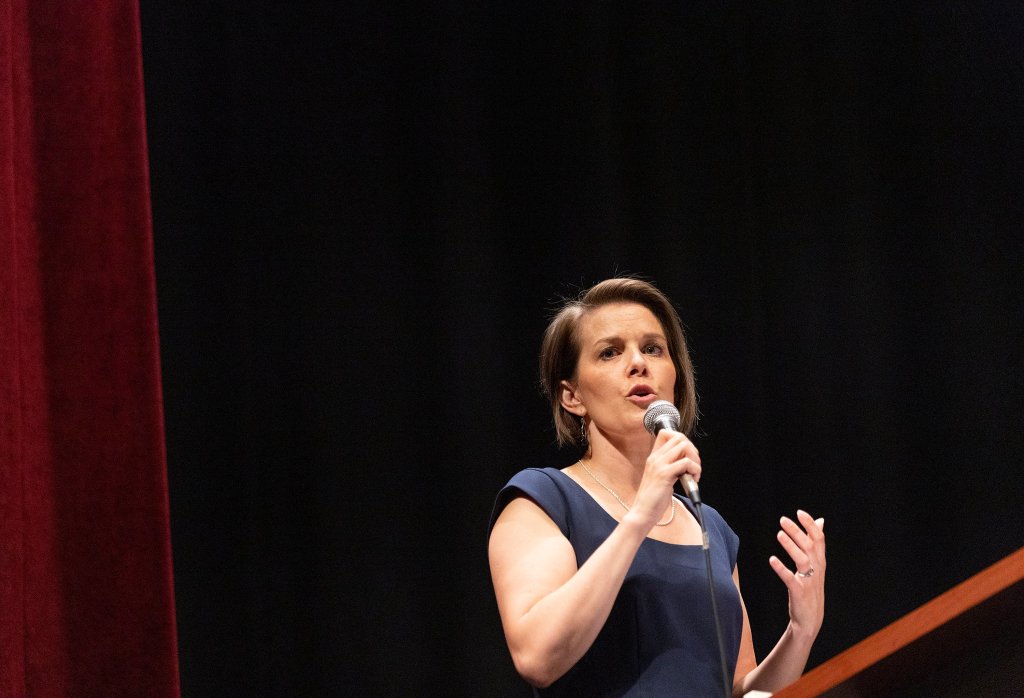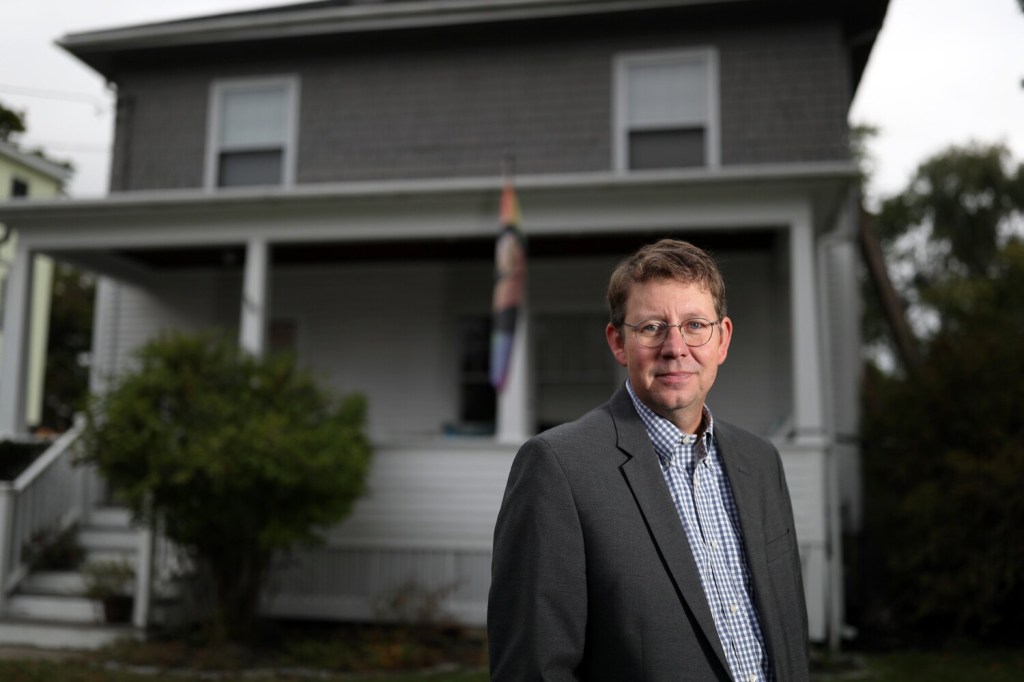A live debate Tuesday night over a statewide referendum to require voter ID and change absentee voting laws was marked by frequent clashes as each side dug into divisions the question has raised about election security.
The half-hour debate, hosted by WGME, comes three weeks before voters will weigh in on the proposal on Nov. 4 and as absentee voting is already underway. Additional debates are planned by other stations for next week.
While supporters of Question 1 have presented the proposal as being mostly about the requirement for photo identification, it also includes a litany of changes to absentee voting, including a new limit on the number of drop boxes per municipality and an end to the ability to request an absentee ballot over the phone. Ongoing absentee voting, which allows voters over age 65 or those with a disability to automatically receive an absentee ballot, would also be eliminated.

Supporters, who were represented in Tuesday’s debate by Question 1 organizer Alex Titcomb and state Rep. Laurel Libby, R-Auburn, characterized the changes as minor and said they are necessary in order to implement the ID requirement in absentee voting.
“It would be irrelevant to pass legislation that puts voter ID in place for in-person voting but doesn’t put it in place for absentee,” Libby said.
David Farmer, an organizer for opponents of Question 1, and Ann Luther, a board member for the League of Women Voters of Maine, argued against the proposal Tuesday night. They focused in large part on a change that would move the deadline to request an absentee ballot from the Thursday before an election to the Tuesday before, effectively eliminating two days of in-person absentee voting at a time when it’s most popular.
“This is a direct attack on absentee voting, which Maine people use all the time and really like,” Luther said.
Titcomb and Libby said the change is not intended to cut back on absentee voting, but is about shifting the deadline to ensure ballots are returned on time.
“We all know the postal service is not always reliable these days, and … we want folks to be sure their ballot gets in and is counted,” Libby said.
Thirty-six states already require some form of voter identification at the polls, according to the National Conference of State Legislatures, though only 10 states have strict photo identification policies similar to what is being proposed in Maine. In most of those 10 states, voters without acceptable identification must vote on a provisional ballot and also take additional steps after Election Day for their ballot to be counted.
The Maine proposal would have election officials challenge a voter’s ballot if they don’t have photo identification, and the voter would then have four days to present their ID to have their vote counted. Exceptions would be allowed for people with religious objections to being photographed, who could complete a signed affidavit instead.
Titcomb said Tuesday that the proposal in Maine is not coming in response to any specific problem or issue, though Libby did point to recent news of a Newburgh woman reporting that she received 250 blank ballots in an Amazon package as eroding trust in Maine elections.
The Newburgh incident is under investigation, though Secretary of State Shenna Bellows, a Democrat opposed to Question 1, has said there is little chance the ballots would have ended up being counted since there are already measures in place to track absentee ballots and ensure that each ballot corresponds with a request from a registered voter.
Farmer pointed out that the secretary of state’s office earlier this year found that allegations by the Maine Republican Party that 51 people had voted twice in the same election in 2024 were unsubstantiated.
“Maine’s elections are safe and secure and Question 1 is about making sure fewer people vote,” Farmer said.
Both sides encouraged people to read the proposal themselves before deciding how to vote. It can be found online on the secretary of state’s website.

